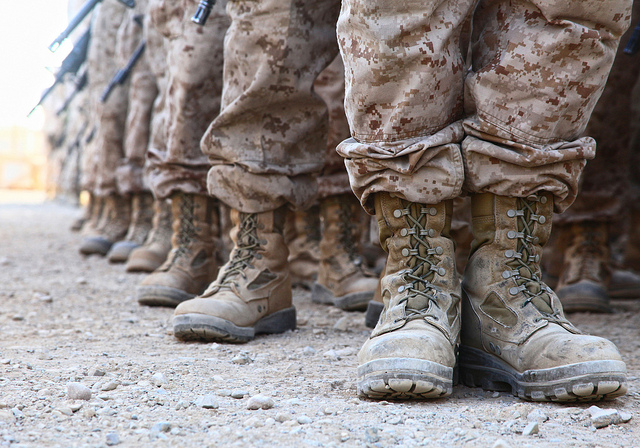Debating ground forces against Daesh: does the fight against Al-Shabaab offer any insights?

In the aftermath of the terrorist attacks in Paris, we’ve seen a reinvigorated
debate about ‘boots on the ground’ in the fight against
daesh, and the US is slowly edging towards greater
ground operations in Iraq and Syria. The debate has so far offered little reflection on the lessons that can be drawn from other theatres in the current (as opposed to historical) fight against Jihadi insurgencies. Somalia’s fight against Al-Shabaab (AS) appears to represent a good example of the difference ground troops can make in fighting insurgency, so what can it teach us with regards to
daesh?
It’s important to establish that there are significant differences in the cultural, historical, economic, and socio-political context between Iraq and Syria, and Somalia. Their respective Jihadi insurgencies are also different;
daesh is much wealthier and greater in strength of numbers and military hardware than AS ever was.
However, there are similarities in the trajectories of insurgency groups which establish themselves as governance structures. Simply put, once such groups start administrating and governing a territory, resources, and a population, they can follow similar paths of development.
Take for example the resources that to a large extent fund AS and
daesh’s governance. Although charcoal (AS) and oil (
daesh) have different origins, production processes, and properties, they’ve been exploited and administrated in a similar fashion. Both charcoal in Somalia, and oil in Syria and Iraq have throughout these insurgencies been successfully produced, taxed, and transported, notwithstanding international sanctions and efforts to stem their trade. And all of that has been done mostly by civilians and local businessmen who aren’t necessarily ‘aligned’ to, or formal members of the two organisations. Most of them would trade in those resources regardless of who governs; life—as they say—must go on.
In Somalia, the African Union Mission In Somalia (AMISOM) troops have been fighting a largely militarily successful offensive against AS since mid-2012 and have in the past three years gained nominal control of most of AS’ major urban strongholds. Because AMISOM troops are more heavily armed than AS, the group has for the most part avoided head-on confrontations. Daesh certainly appears better equipped than AS but it’s conceivable that a well-armed ground force supported by airstrikes (which AMISOM doesn’t have) would be successful in dispensing with
daesh in head-on conventional battles.
But what happens next? As the example of Somalia has clearly shown, once the military part of the operation is done, the supporting social services and policing are key for gaining, and maintaining the support of the local population. This in turn should help further fight and marginalise the insurgency by denying it local support. However, those capacities are weak in Somalia, hence Al-Shabaab’s consistent ability to infiltrate state security structures and continue mounting devastating attacks in areas nominally under AMISOM control (including the capital Mogadishu).
That’s directly relevant to the ground troop fight against
daesh. Is there a capacity within Iraq or Syria for those supporting services once
daesh is nominally no longer in control of major urban strongholds? Simply put, what will come after the expected victorious military ground offensives against
daesh, and how will it help gain the trust of the locals and foster inclusive governance which would serve as a bulwark against the organisation’s resurgence?
There are those like David Kilcullen who
argue that boots on the ground are the answer to
daesh, but that such an operation must resemble the ‘surge’ that already proved so effective in almost annihilating
daesh’s predecessor al-Qaeda in Iraq in the late 2000s.
That’s a valid argument, but still raises two obvious problems. One, it’s arguably only a matter of time before such ground troops are seen as a foreign occupational force, particularly if they consist of only Western troops. This could be partially mitigated by including regional Sunni Arab countries, but such contributions appear unlikely especially given their currently overwhelming focus on Yemen (and latent sympathy for
daesh). Shia militias are already operating as ground forces in the region, but their unpopularity with the locals in Iraq is what helped cause the rise of
daesh in the first place
The second and potentially more difficult problem is the length of time ground troops would be deployed. How long would such a ‘surge 2.0’ need to last? It’s here that Somalia offers an answer many don’t want to hear: AMISOM troops have been fighting AS since 2007 and that fight appears to be far from over.
If the fight against AS has any lessons to offer, it’s that if ground forces are deployed, what comes after their expected military victory is what will define the ultimate success of any such ground force deployments.
 Print This Post
Print This Post